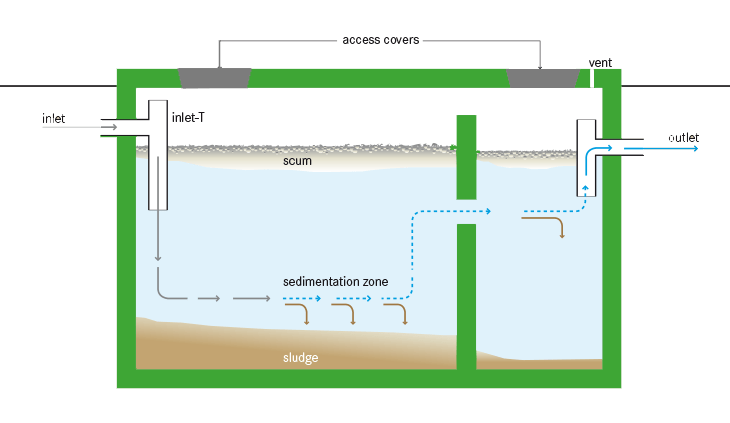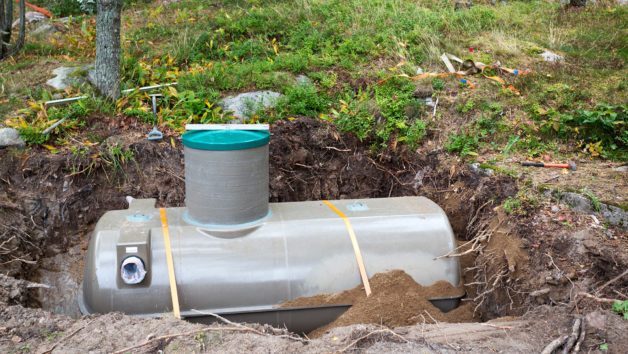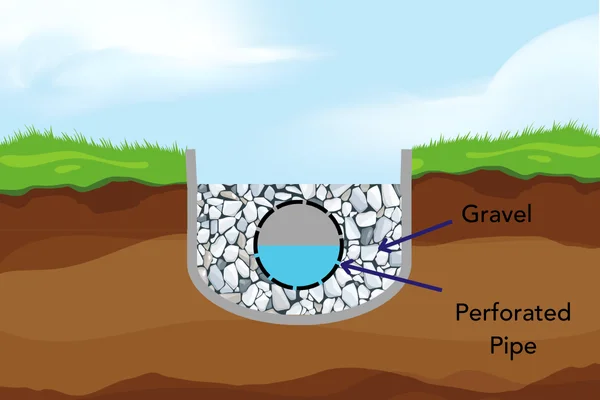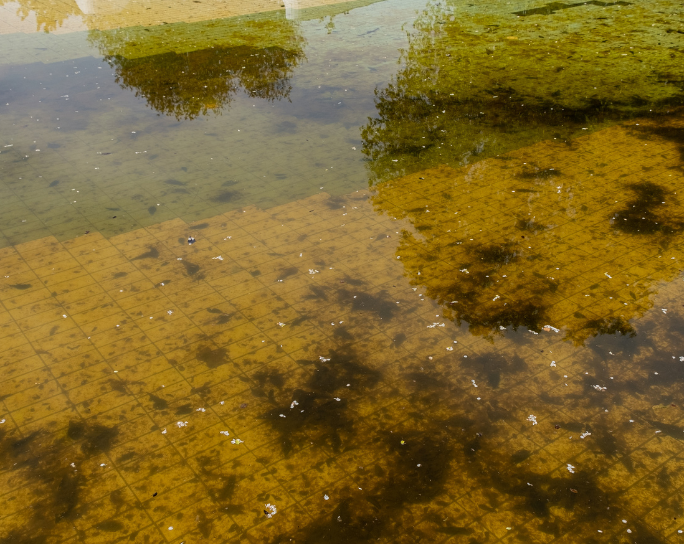What is a Septic Tank Drainage Field?
A septic tank drainage field – also known as a leach field, dispersal field or absorption field – is an essential component of the septic systems. It’s purpose is to treat and dispose of wastewater from the septic tank, which services buildings that are not connected to a public sewer system.
You would typically expect to find one located underground, downstream of the septic tank and consisting of a network of perforated pipes buried in gravel or a similar porous material.
Why is a Septic Tank Drainage Field Needed?
An appropriately planned and well-maintained septic tank drainage field is vital to ensure the efficient and safe disposal of wastewater.
When a drain field becomes obstructed or fails, it can result in backups of wastewater, overflows and unpleasant odours, not to mention environmental pollution.
To guarantee the effectiveness of a septic system and it’s associated drain field, routine inspections, maintenance, and responsible usage are crucial.
How Do Septic Tank Drainage Fields Work?
When homes and businesses use toilets, sinks and showers, the wastewater flows into a septic tank.
In these tanks, solid waste settles at the bottom. The bacteria works on organic matter in the wastewater, creating three layers:
- scum (floating materials)
- effluent (liquid in the middle)
- sludge (settled solids at the bottom)
The liquid effluent is discharged from the septic tank into the drainage field. Once in the drainage field, the effluent is distributed evenly through the perforated pipes and percolates through any surrounding soil. The drainage field is constructed to comply with building and other regulations so that the waste water is treated by aerobic bacteria which thrive in these conditions. Aerobic bacteria perform the major treatment of waste water before it disperses into the sub-soil.
 How Do Septic Tank Drainage Fields Prevent Pollution?
How Do Septic Tank Drainage Fields Prevent Pollution?
Septic tank drainage fields prevent pollution through a natural treatment process, as this effectively treats wastewater before it is released into the environment. The soil functions as a filtration system which further cleans the water, reducing levels of harmful bacteria, viruses and contaminants.
The drainage field allows for the retention and gradual release of treated effluent into the surrounding environment. Remaining contaminants are diluted, ensuring that the discharged water poses minimal harm to the environment.
Regular Maintenance
Septic tank drainage fields and septic tanks play a crucial role in safeguarding water quality and preventing pollution of groundwater and surface water. Properly functioning septic systems are essential for protecting human health and the environment in areas not served by a public sewer network or centralised sewage treatment plants.
A well-designed septic system includes measures to maintain a safe separation distance between the drain field and water courses. It should be noted that septic tanks and drainage fields are not suitable in some areas such as groundwater source protection zones (SPZs). This separation helps prevent direct contamination of groundwater, which is a crucial source of drinking water for many areas.
Regular inspection and maintenance of the septic tank and drain field are essential to ensure their proper functioning. This includes monitoring the level of sludge and scum in the septic tank, checking for signs of clogs or problems in the drainage field, and ensuring that the system meets local regulations and environmental standards.
Compliance in the UK
The General Binding Rules regulate small sewage discharges and apply to operators of septic tanks or small sewage treatment plants.
With a nationwide fleet at Metro Rod, we are well positioned to provide a wide range of septic tank services for both commercial and domestic properties. These include septic tank assessments, septic tank emptying, septic tank waste disposal and desludging, as well as installation of new drainage fields.
Where your existing septic system has reached the end of life, we can advise on most cost effective repair options such as replacement or installation of a wate water treatment plant.
Contact Us
Where your existing septic system has reached the end of life, we can advise on most cost effective repair options such as replacement or installation of a wate water treatment plant. If we empty your septic tank, we also take the sewage to a licensed waste facility where it can be disposed of responsibly. For more information, call us on 0800 66 88 00 or find a Metro Rod depot near you.

Talk to your local Metro Rod specialist
We are always happy to arrange a free site assessment and no obligation quotations for any work you might need. Alternatively, you can call our emergency hotline number on 0800 66 88 00
Get in touch Drainage Services

